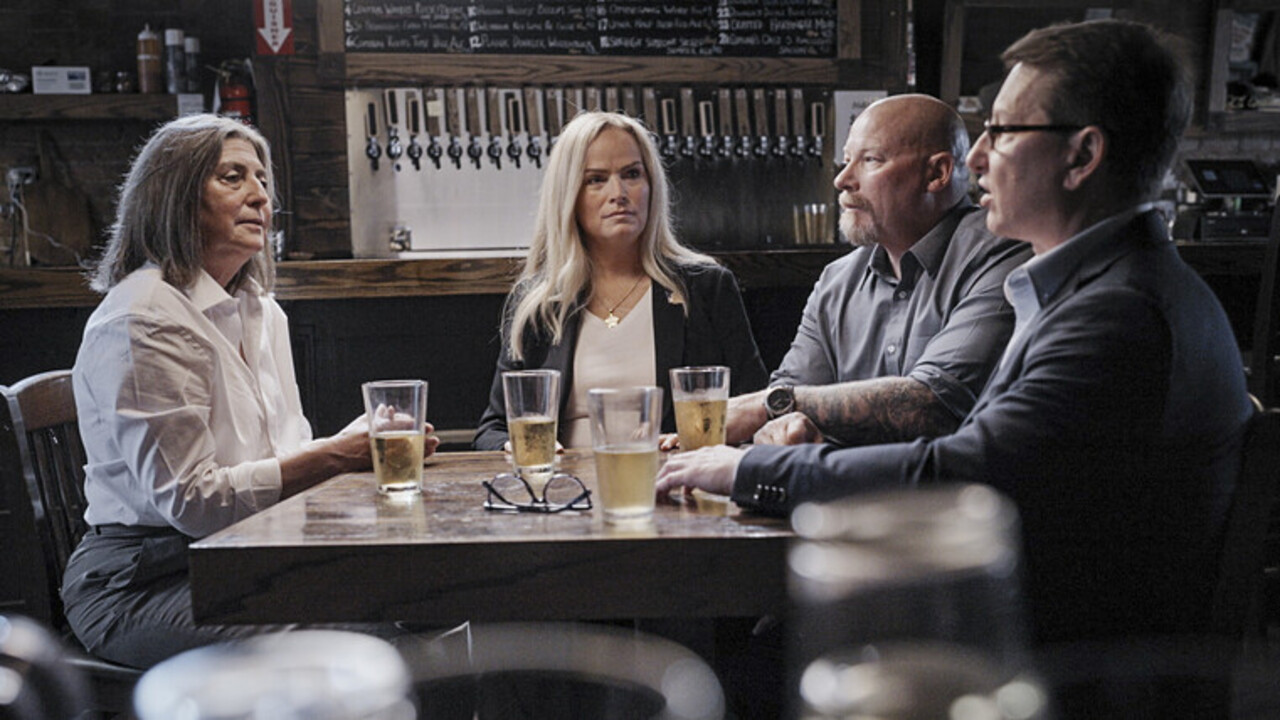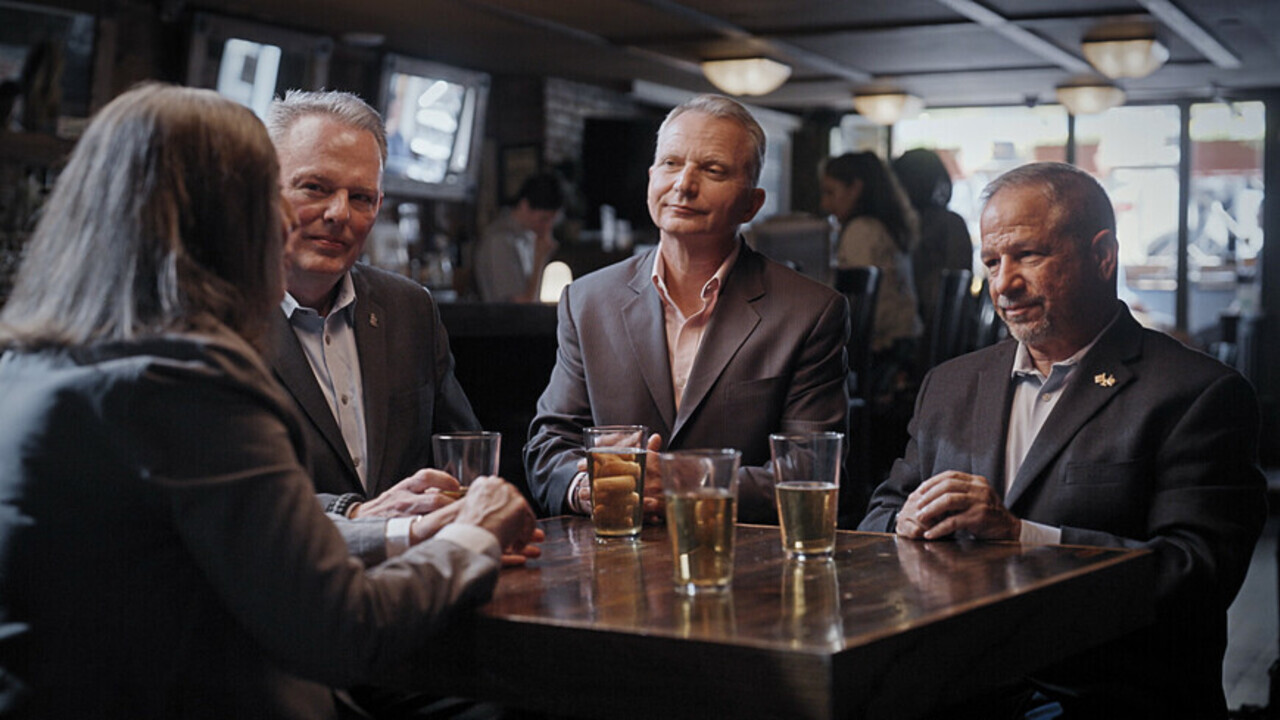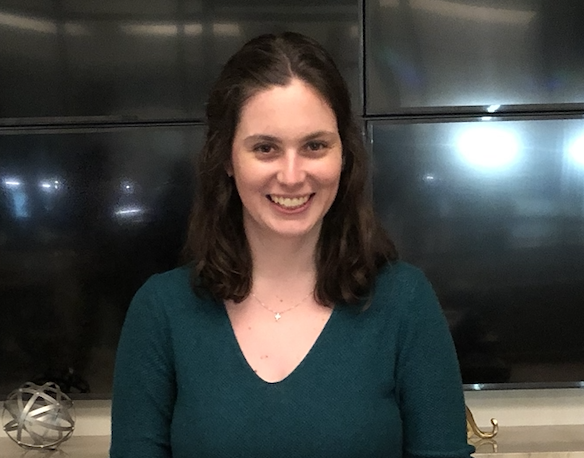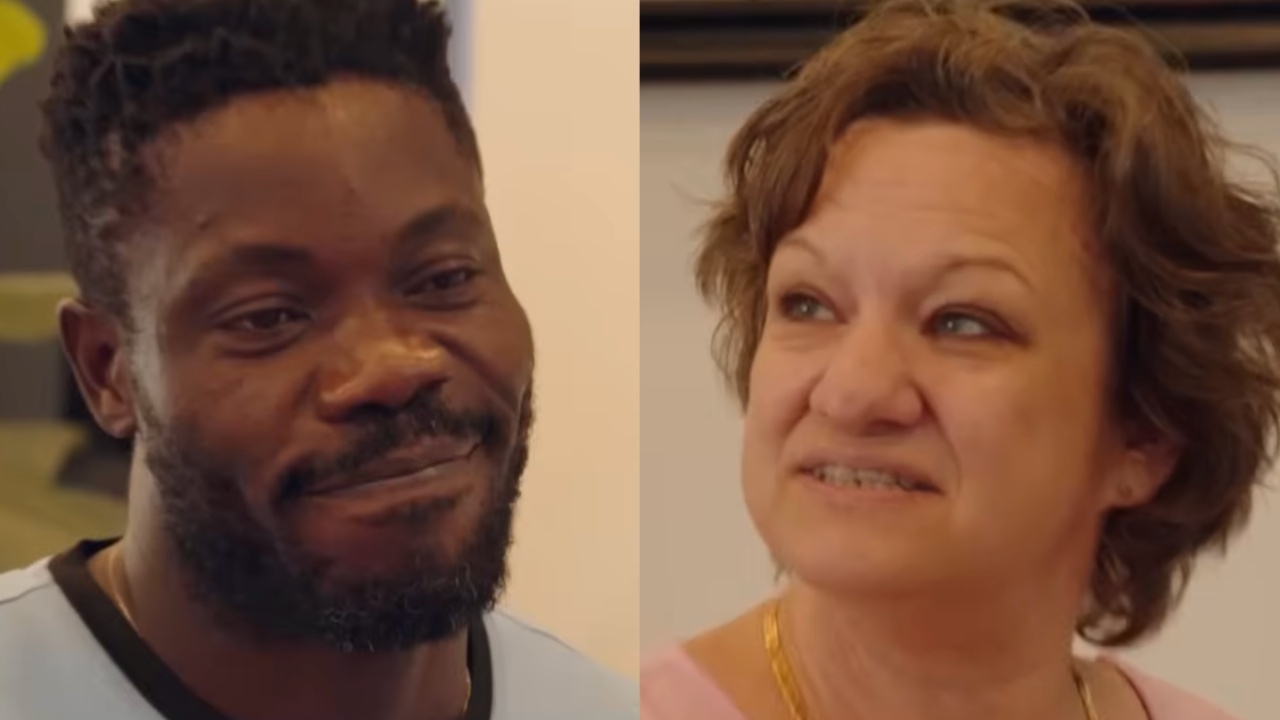As FBI True Examines 'Operation Knockout' And 'Terror In Times Square,' Real-Life Agents Open Up About The Cases
Former FBI agents, investigators, and prosecutors spoke with CinemaBlend for FBI True's next episodes.
FBI True arrived in primetime on CBS this fall to revisit high-stakes cases from FBI history through the eyes of the law enforcement officers who were involved. Although the docuseries originally released streaming for Paramount+ subscribers, two never-before-seen installments will air soon the 2023 TV schedule. CinemaBlend spoke with the former FBI agents, investigators, and prosecutors who worked on the cases that will be covered the November 7 about their experiences.
"Operation Knockout" covers how the biggest anti-gang operation in U.S. history worked to take down a deadly gang in the city of Hawaiian Gardens, CA in 2005, and a sneak peek clip (seen above) previews the challenges the law enforcement agencies were facing. "Terror in Times Square" delves into the case of a bomb threat in New York City that had the country on alert back in 2010.
Read on for what the real-life investigators shared with me about their times working on these cases, starting with Hawaiian Gardens.

Operation Knockout: The Biggest Takedown
"Operation Knockout" tells the story of the task force led by the FBI to take down a Latino gang known for drug dealing, extortion, and hate-motivated attacks targeting African Americans. When Deputy Jerry Ortiz was tragically murdered shortly after getting married in 2005, the task force came together, comprised of more than forty federal, state, and local law enforcement agencies.
I spoke with retired FBI agent Maureen O'Connell, retired homicide investigator Gary Sloan, and former federal prosecutor Mike Lowe ahead of the FBI True installment airing on CBS, and I asked what it was like for them to revisit the case for the docuseries. Speaking first, Sloan shared:
It was a long time coming, Laura, and the thing that I believe all three of us were so excited about is that we got to tell the story, and this was not going to be an embellished story that was going to be told through a television series or a movie, but the viewers actually get to see the people who were directly involved with it. I think that was extremely important for all of us.
One element of FBI True that sets it apart from other crime docuseries is the first-person perspectives of the agents and investigators as they talk to each other, rather than to a camera or an interviewer. As Gary Sloan pointed out, they told the story themselves, in their own words. Retired agent Maureen O'Connell agreed with him, and elaborated:
It was also very emotional because we clearly poured our hearts and souls into this. By 'we,' I mean the whole team, not just the three of us. This was one of those cases where all the way up the chain in our office, in Gary's office, and in Mike's office, everyone was passionate about this. When we needed resources, we got resources. This is the type of case that resonated with everyone in law enforcement and everyone in the community. Just everyone in law enforcement, let's just say that to start. So that's why it was very emotional for us.
The task force made history in the United States, and revisiting Operation Knockout for FBI True nearly two decades after Deputy Ortiz's death brought out different kinds of emotions, as former federal prosecutor Mike Lowe pointed out:
Your Daily Blend of Entertainment News
I'd say it brought back a lot of feelings, both good and bad. The good were the camaraderie that we experienced working together side by side for five years. Actually, it was more like six years... but for those six years, I was with these guys pretty much every Monday through Friday. It seemed like I was with one of them. We had weekly meetings. And the bad was the emotions, as Maureen said. This was a tough case. There was a visceral reaction as you got involved in this, particularly because of what happened to Jerry, which is what started this whole thing off from the law enforcement side of things. So a lot of good memories [and] a lot of bad memories in the sense of just how you felt at the time. But it was really nice to be able to get the story told.
The work that went into Operation Knockout required the agents to deeply invest in their investigation and the people involved. Maureen O'Connell explained what was necessary to do their jobs:
In order for us to do a really good job, we had to get down into the dirt, so to speak. We had to get to know these people, feel what they were feeling. We're up on wiretaps. We're listening to conversations that they're having. You're just immersed in the underbelly for years, and it takes its toll.
While the operation took "its toll," according to the retired FBI agent, they had a very specific goal in why they wanted to tell the story on FBI True. Noting that even viewers who are familiar with the history-making case may not know Jerry Ortiz's name, I asked how important it was to them to be able to tell his story. O'Connell said:
That's the only reason we did this. We only did this because we want Jerry to be known for the hero that he is... We did it for Jerry and we did it for his wife and his family.
The FBI True episode that covers Operation Knockout will air on CBS at 9 p.m. ET on November 7 to shed more light on Jerry Ortiz. Former homicide investigator Gary Sloan picked up on O'Connell's point and spoke about Ortiz's wife:
If you ever met his widow, Chela, you'd have a pure understanding because you're talking about somebody who was probably one of the best human beings I've ever met in my life. To this day, we are close, close personal friends. The outpour we had from not only the public, but the family members knowing that Jerry had to go to work and this could have had the capability of happening. However, the family and the thanks that we got from them was something that you could not pay for. It's something that words can't even describe. It's an emotion that you will never ever feel again in your life, because this is a career-making one-shot type of deal. That was the reason why this had to be told. It's in honor of everybody who was involved.
For more of the story of Hawaiian Gardens, Jerry Ortiz, and the massive task force that brought these three people together, be sure to tune in to FBI True on November 7 on CBS. The other half hour of the FBI True episode will be dedicated a potential catastrophe in Times Square with high stakes and a ticking clock from 2010.

Terror In Times Square: Chasing A Madman
"Terror in Times Square: Chasing a Madman" will examine the case of an attempted bombing in New York City and the resulting manhunt that required all hands on deck. The agents and law enforcement officers had to race to catch the would-be bomber and prevent the culprit from striking again.
I was able to speak with former New York Domestic Terrorism Squad Supervisory Special Agent Greg Ehrie, former Senior Special Agent Bomb Technician Peter Licata, and Associated Director of National Intelligence Rich Frankel for FBI True, and they shared what it was like for them to revisit the Times Square situation that was both high-stakes and high-profile in 2010. Greg Ehrie shared:
It was great. We're all retired [and] working other jobs. We don't get to see each other as much. It reminded me, especially not only sitting there in that setting that we're familiar with, but seeing Pete and seeing Rich. Remember, we spent a lot of time together over the years. It was great to catch up to see [Kristy Kottis] and Annie [Beagan] and some other folks. It just brings back some – it seems odd when we say this – some really fond memories. You realize how much you all went through together and that kind of deja vu. And it's funny how quickly you fall right back into the conversations.
Former FBI agent Kristy Kottis joined the three men for "Terror in Times Square" as they shared their experiences in the case, and former agent Anne Beagan – who opened up about the "Boy in the Bunker" case – is an executive producer for FBI True. Pete Licata agreed with Greg Ehrie about the show, and continued:
We hope these episodes that that are being put on [are] showing the public that law enforcement – for us, kind of selfishly, the FBI specifically – these are normal men and women. Take all the politics out that's been going on. These are normal folks that are doing a great job and it was a good reminder. I learned something new again, things that – I call it senioritis – and you forget things. Just listening to Rich and Greg retell their accounting of it, like, 'Oh yeah, shoot, that's right. I forgot about that.'
The attempted bombing in Times Square occurred back in 2010, so plenty of time has passed since these agents were in the thick of the action of the case. Licata continued:
As much as I did my prep, I did some homework and try to remember what I did for those few days, you still learn and I think moreover, it just shows, and hopefully it came out in the episode, that these are normal folks. These are folks that actually got along. They're professionals, but they're just good people and they're all out doing the right thing. That's kind of what came to mind as we were doing that.
Apparently, it took the three men and Kristy Kottis very little time to fall back into their old camaraderie for the CBS docuseries. According to Rich Frankel, that actually caused an unexpected complication before the cameras even started rolling, since Kottis had been "an integral part of the team." Frankel explained:
We started talking and I think one of the producers came up and said, 'Hey, guys, stop it. This has got to go on the show. Stop talking about it now.' It's almost like the Howard Stern Show where they say don't talk about things off air. [laughs] We were off air. They want to save that. You don't love everybody that you meet, of course, in the FBI, but we have that shared memory, and it just so happens that they put three friends together. Actually five, when you put Anne, Kristy, and the three of us together. So once we sat down whether we had a beer or a coffee, it would have been the same conversations.
Of course, there was plenty to talk about with the case that inspired "Terror in Times Square," which moved at an extremely fast pace. When I noted that 2010 wasn't actually that long ago but also wasn't too far off from the September 11, 2001 attacks on New York City, the retired agents weighed in on how the timing of the incident affected how it was handled. Rich Frankel said:
You're exactly right. It was far enough after 9/11 that we were starting to do other things. New York was coming back. New York was actually in a good place, in my opinion, at that point. But it was still well in our minds, especially on the [Joint Terrorism Task Force]. This is what we were doing. All of us were on the JTTF since 9/11, basically. This type of thing was always a possibility in the back of our mind. That's actually what we were striving to protect against. When it happened, whether it's good or bad looking back, we actually were ready to go.
Viewers will have to wait until "Terror in Times Square" airs on CBS on November 7 for the full story, but the JTTF had all hands on deck to face this potential catastrophe in New York City. Frankel continued:
We had dealt with this on a couple of occasions, similar type of situations. There was a threat to blow up the subways, and there were a couple of other incidents in New York where we had already gone through responding to a potential terrorist incident. So for this one... we were running on all cylinders. We were ready for it, and we responded to it. And when I say 'we,' I don't mean just the FBI. I mean the entirety of the JTTF, the 50+ agencies, and the 500 or more responders immediately went into action, and either knew what to do or knew where to go, so that they could get their orders on what to do. This was almost, I wouldn't say textbook, but it was almost a textbook response to a terrorism incident.
The agents didn't initially know the scale of the threat that they were facing, which FBI True will delve into further with the full episode. Greg Ehrie shared the initial response to the incident:
We were in a constant tempo. It's the muscle memory. [When] this originally started, we thought this was probably going to be another false alarm. Respond to and make sure everybody's safe and go back to, but as Rich pointed out, the events that had happened before that – real or even practice – the entire office, NYO, was probably one of the most experienced response offices across the Bureau and across the country.
In explaining the response to the bomb threat, Greg Ehrie also mentioned something that will sound familiar to fans of CBS' FBI, which recently hit a major milestone. The characters of the scripted show are often operating out of the JOC. The retired special agent said:
I remember, we even had the JOC – the Joint Operations Center – which generally is a big room, the big screen, you see them all the time. Everybody knew exactly where to sit. I mean, we never took it down. We flew right into this. It's real. People responded on their own, took up their seats, the analysts started analyzing, the bomb techs are doing their things, feeding information all across the board, while there was absolutely a sense of urgency. As we say, the temperature was rising. Everybody knew exactly what they were supposed to do.
Tune in to CBS on Tuesday, November 7 starting at 9 p.m. ET for the next new episode of FBI True, with "Operation Knockout: The Biggest Takedown" at 9 p.m. ET and "Terror in Times Square: Chasing a Madman" at 9:30 p.m. ET. You can also revisit past episodes of the docuseries streaming with a subscription to Paramount+ now.

Laura turned a lifelong love of television into a valid reason to write and think about TV on a daily basis. She's not a doctor, lawyer, or detective, but watches a lot of them in primetime. CinemaBlend's resident expert and interviewer for One Chicago, the galaxy far, far away, and a variety of other primetime television. Will not time travel and can cite multiple TV shows to explain why. She does, however, want to believe that she can sneak references to The X-Files into daily conversation (and author bios).
